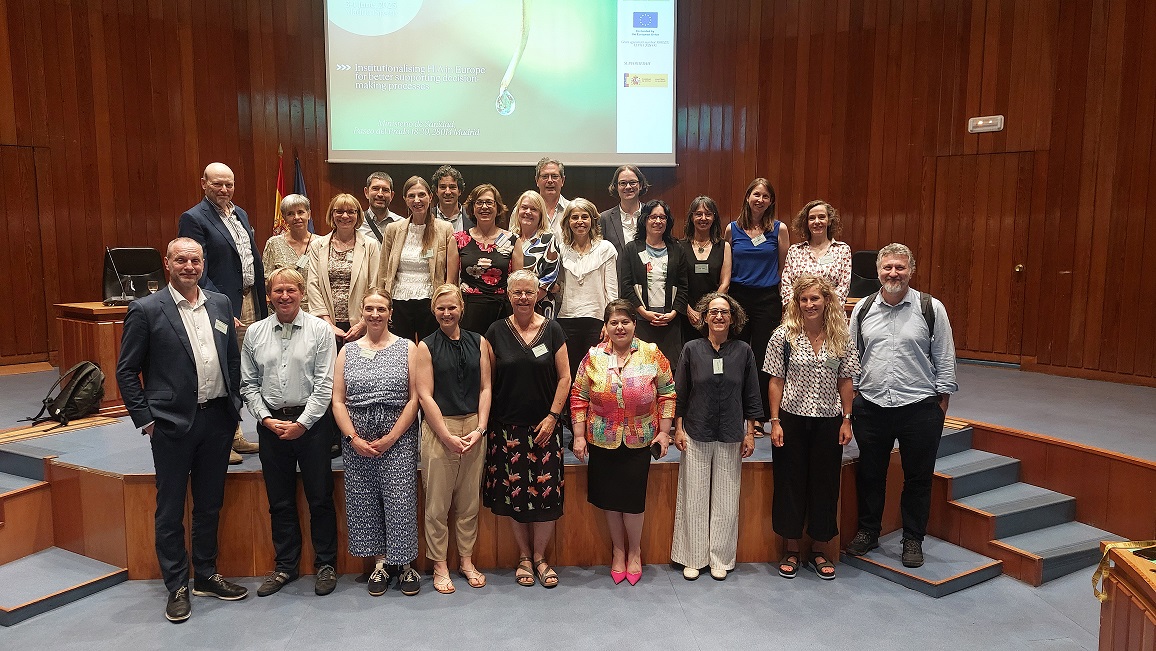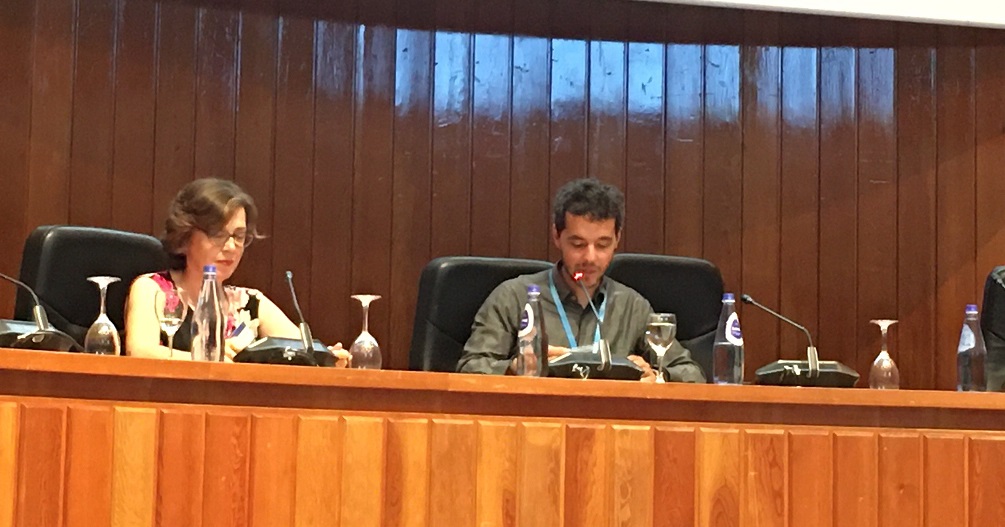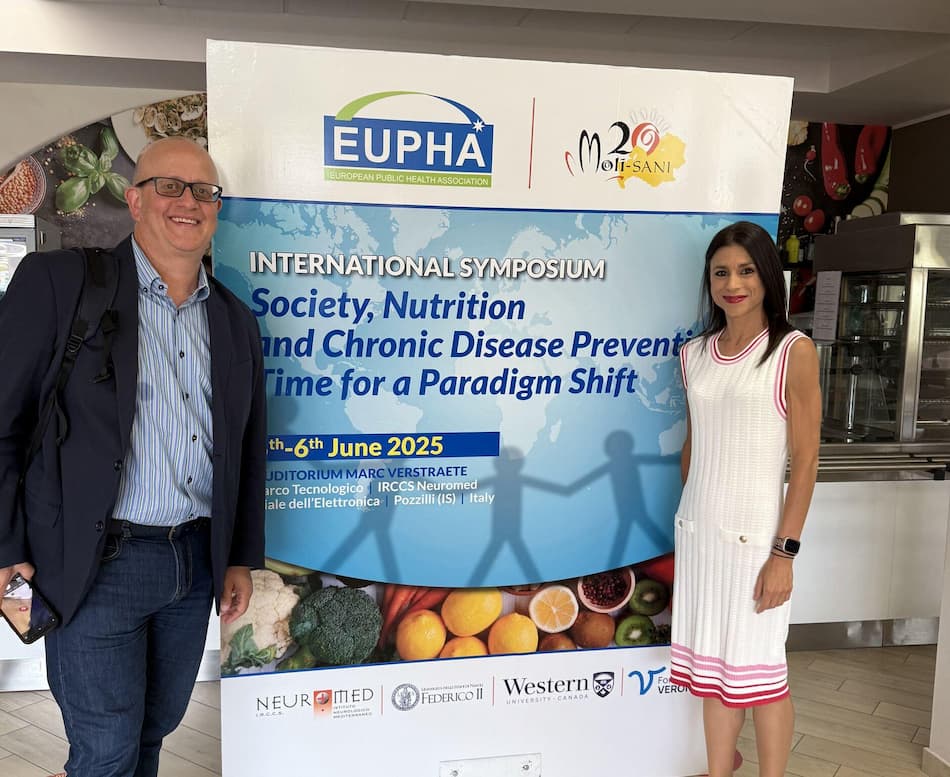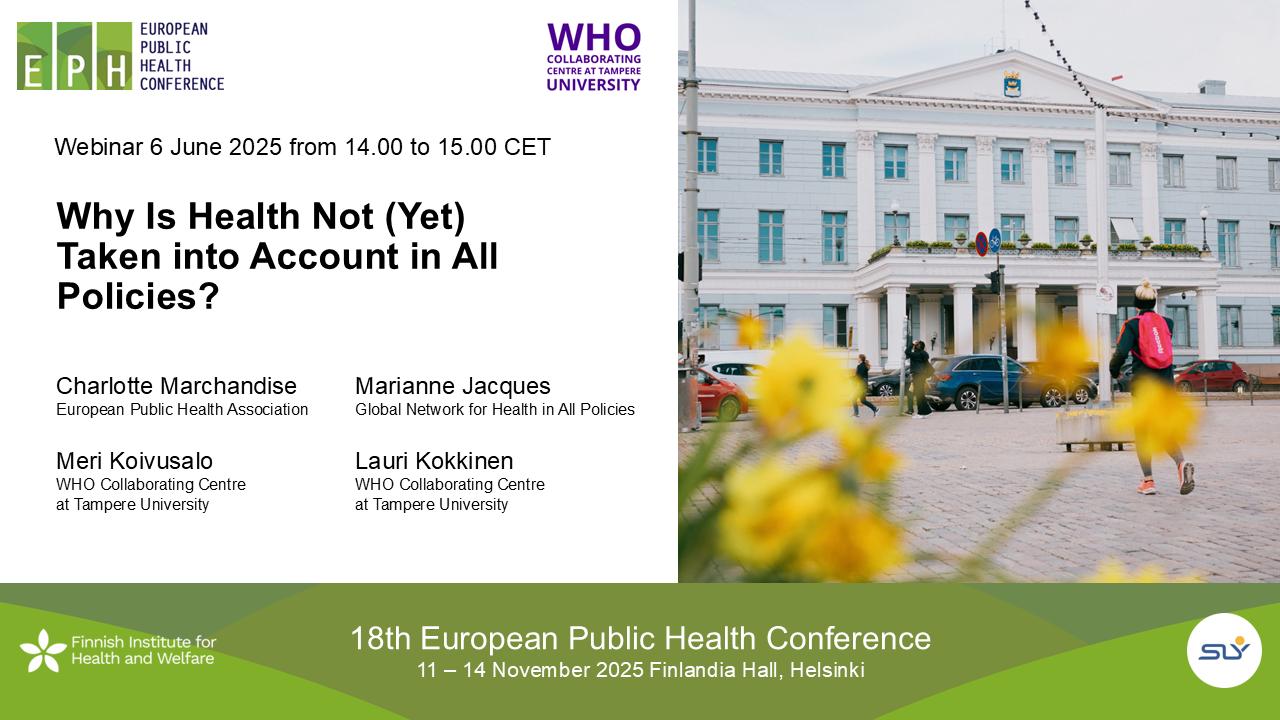 |
The European Public Health Association Newsletter - June 2025 |
|
Newsletter - June 2025 |
1. EditorialCapacity building: a strategic pillar for a resilient public health workforceAt its core, public health is about people, justice, and resilience. Yet many of those who embody these values in their daily work, community health workers, early-career professionals, policy advisors, public health advocates, still operate in the shadows of recognition. At EUPHA, we believe that professionalizing public health is not optional. It is strategic. That’s why capacity building now stands as one of the four core pillars of our 2025–2030 strategy. Our vision is clear: a public health workforce that is visible, recognized, and empowered across Europe. We are not starting from scratch. Together with our partners, including WHO/Europe, ASPHER, and civil society networks, we are building a system that supports lifelong learning. A system that moves beyond academic degrees and clinical roles. One that offers competency-based, flexible, and portable learning pathways. This vision is already taking shape. At this year’s European Public Health Week (EUPHW), we shared examples of how we are turning this strategy into action. From piloting micro-credentials in advocacy and diplomacy, to recognizing the essential role of community health workers, we are laying the groundwork for a new professional culture. One that values real-world skills, like systems thinking, cross-sector collaboration, and ethical leadership, and backs them with formal, shareable recognition through open badges. Our aim is not only to teach, but to transform how we think about public health careers. We are committed to embedding quality, transparency, and inclusion in all our capacity-building efforts. That means training that is participatory, competency-led, and evaluated, connected to the Essential Public Health Functions and to the lived realities of today’s workforce. Europe needs a strong, trusted public health workforce more than ever. We want to make it visible, valued, and ready for the challenges ahead. Let’s not just talk about transformation - let’s credential it, value it, and make it count. Dr. Tit Albreht, EUPHA President |
2. EUPHA newsInstitutionalizing Health Impact Assessment in Europe: Mid-term Conference Highlights (3–4 June 2025, Madrid, Spain)Earlier this month, public health professionals, legal experts, and decision-makers from across Europe gathered in Madrid for the mid-term Health and Impact Assessment (HIA) conference. Organized by EUPHA’s Health Impact Assessment Section and the Spanish Ministry of Health, the event explored how to move from project-based HIA to systemic, institutionalized use across sectors and countries. Opening the conference, Margaret Douglas (Public Health Scotland) delivered a keynote outlining the evolution of HIA - from a fragmented practice to one underpinned by structured frameworks and intersectoral ambitions. She also highlighted the risks of integration without strong legal mandates, which can marginalize health in broader environmental or social assessments. Case studies from Wales, Austria, and Georgia illustrated the diversity of institutional approaches. Wales stands out with its legally mandated and well-resourced HIA system, while Austria has maintained a vibrant HIA community despite limited legal backing. Georgia’s legal alignment with EU directives shows promising practice through Strategic Environmental Assessment integration. Participants stressed the need for:
A key theme across all sessions was the role of HIA as a bridge across sectors. Speakers described how HIA offers a platform for dialogue between public health and domains such as urban planning, environment, and transport. Practical tools, such as screening checklists and participatory models, were shared to help tailor assessments to different audiences and policy contexts. Special attention was also given to the role of public participation in HIA. As Katie Hirono (University of Edinburgh) noted, engaging communities is not just ethically essential - it improves data quality, builds trust, and can function as an intervention in itself. Closing sessions focused on capacity-building. Speakers from Andalusia, Wales, and the International Association for Impact Assessment (IAIA) shared concrete models for training, ranging from online modules to legislative job profiles. Liz Green (Public Health Wales) highlighted the importance of building competencies beyond technical knowledge to include ethics, communication, and long-term stakeholder engagement. As institutionalization progresses, several cross-cutting challenges remain: variable legal frameworks, political instability, limited technical capacity, and the risk of marginalizing equity considerations. However, participants left Madrid with a renewed commitment to advance HIA as a critical tool for health equity and resilient policymaking.
EUPHA International Symposium – Society, Nutrition and Chronic Disease Prevention: Time for a Paradigm Shift (5–6 June 2025, Pozzilli, Italy)More than 100 public-health professionals, academics and policy-makers met in-person and online at IRCCS Neuromed, Molise, for a two-day symposium hosted by EUPHA’s Chronic Diseases and Food & Nutrition Sections. Discussions centered on the urgent need to reframe how society approaches nutrition and chronic disease prevention. Speakers drew on major European cohort studies - including Moli-sani, EPIC and NutriNet-Santé - to illustrate how robust dietary evidence can shape policy. Panels tackled ultra-processed food consumption, sustainable diets and the integration of NOVA classification into surveillance systems. Highlights included:
Lively audience exchanges underscored the urgency of aligning nutrition guidance with sustainability goals and tackling commercial determinants of diet. The symposium concluded with a shared commitment to translate research into equitable, actionable policies across Europe. Photo credit: Dr. Sarah Cuschieri
EuroHeartPath Project Launched to Transform Cardiovascular Care Across EuropeThe EuroHeartPath project, officially launched under the Horizon Europe Innovative Health Initiative Joint Undertaking (IHI-JU), brings together 35 leading academic, clinical, public health, industry, and societal partners from across Europe. With a significant €27 million budget spanning a five-year timeline, EuroHeartPath is set to radically transform cardiovascular care by mapping, comparing, and optimizing care pathways throughout the continuum of heart disease. The EuroHeartPath consortium brings together diverse expertise from hospitals, academic institutions, technology innovators, policymakers, and patient advocacy groups. Through this unique collaboration, partners aim to bridge the gap between innovation and clinical practice, ensuring that breakthroughs quickly translate into practical, widespread benefits for European citizens at risk of or living with heart disease. EUPHA is proud to be part of the EuroHeartPath consortium. We provide targeted support by contributing its public health expertise. Our role will involve supporting improvements in care delivery by sharing best practices across countries, helping to ensure patient data is used ethically and safely, and contributing to the planning of how the project’s results can be sustained and used in the long term. “Julian Hein (EUPHA’s Science & Project Manager) commented: 'Participating in EuroHeartPath underscores our commitment to improving cardiovascular health across Europe. We bring our expertise from within the EUPHA Chronic Diseases section and EUPHA project management to this ambitious initiative, and we look forward to achieving significant advancements in cardiovascular care alongside our European partners.'" Read the full press release on EuroHeartPath. Have your say: PROPHET public consultation now openAs a proud project partner of the Horizon Europe-funded PROPHET project, EUPHA is pleased to share that the public consultation is now open. Following an expert consultation phase, the project has launched a public consultation running until 16 July 2025. This is your opportunity to provide feedback on the full draft of the Strategic Research and Innovation Agenda (SRIA) and its supporting Roadmap - key documents shaping the future of Personalised Prevention in Europe. Participation is open to everyone, and we encourage our members and public health professionals to contribute. Access the consultation materials and submission form on the PROPHET public consultation webpage. Spotlight on Youth Mental Health: New EJPH e-collectionEUPHA and its Public Mental Health Section have led the development of a new curated e-collection in the European Journal of Public Health focused on youth mental health and mental health conditions. This timely collection brings together evidence, case studies, and policy insights to support early intervention and system-level change across Europe. With youth mental health challenges on the rise, the e-collection offers practical tools and research-based recommendations for policymakers, practitioners, and educators. The collection highlights how various social environments—such as schools, families, and digital spaces—impact youth mental health, highlighting both risks and protective factors. Visit the EJPH website to access the full series. European Journal of Public Health impact factor rises to 3.9The European Journal of Public Health (EJPH) has achieved a 2024 impact factor of 3.9, up from 3.7 the previous year. This increase reflects the journal’s continued influence in the field and its growing role in shaping public health research and policy across Europe and beyond. As the official journal of EUPHA, this milestone is good news for our network. It signals stronger visibility and higher citation rates for the work published in EJPH, affirming the journal’s relevance to both the academic and policy-making communities. It also strengthens the case for choosing EJPH as a trusted outlet for impactful, peer-reviewed research. We extend our thanks to the editorial team, reviewers, authors, and readers who continue to contribute to the journal’s success. The upward trend in impact factor reflects the collective commitment of the EUPHA community to advancing public health in Europe. New WHO Collaborating Centre at Maastricht University to Strengthen Public Health Leadership in EuropeThe World Health Organization (WHO) has designated Maastricht University’s Department of International Health as a WHO Collaborating Centre on Public Health Leadership and Workforce Development. Based within the Faculty of Health, Medicine and Life Sciences, the new Centre will support countries in the WHO European Region to strengthen public health capacity through leadership development, workforce planning, and education. The Centre will focus on helping public health systems adapt to future challenges by co-developing leadership frameworks, supporting national workforce strategies, and promoting interprofessional learning. It will also contribute to WHO’s Roadmap for Health and Well-being in the Region and the Pan-European Commission on Health and Sustainable Development. Maastricht University’s Department of International Health is an institutional member of EUPHA and has long been active in advancing health systems and policy research across Europe. This new designation builds on its strong commitment to capacity building and international collaboration in public health. For more information, visit the WHO Europe news release. Welcome to Jennie Elzinga, EUPHA’s New Conference and Events ManagerWe are pleased to announce that at the beginning of June Jennie Elzinga joined EUPHA and the European Public Health (EPH) Conference as our new Conference and Events Manager. Jennie brings extensive experience in international event management, having successfully delivered conferences and exhibitions across a range of sectors. With a strong sense of purpose and a passion for fostering collaboration, she is well-positioned to lead the EPH Conference and oversee EUPHA’s wider events portfolio. In her new role, Jennie will be responsible for delivering impactful, high-quality events that advance public health and equity in Europe. From shaping scientific programmes and managing key partnerships to exploring new and innovative event formats, she will play a central role in ensuring our events remain rigorous, relevant, and engaging. We are delighted to welcome Jennie to the team and look forward to the energy and expertise she will bring to EUPHA, the EPH Conference, and the broader public health community. |
3. European Public Health ConferenceRegister now: Early-bird deadline for EPH Conference 2025 closes 15 JulyPlanning to join us in Helsinki for the 18th European Public Health Conference? Don’t miss the early-bird registration deadline on 15 July 2025. Secure your spot at a reduced rate and be part of this year’s programme, built around the theme ‘Investing for sustainable health and well-being’. View registration fees and details Abstract and workshop results now availableThe results of all abstract and workshop submissions for EPH Conference 2025 are now online. To view the status of your submission, log into your personal account. This year, the International Scientific Committee reviewed 3,294 abstracts of which 291 workshop proposals. Final decisions were approved by the EPH Conference Executive Board. We thank all contributors for their submissions. If your workshop has been accepted, you may make final edits to your submission until 15 July 2025. After this date, no changes can be made. For more information on the scoring and review process, please visit the Conference’s website. Next steps for accepted abstracts and workshopsTo confirm your place in the programme, please follow these steps:
For help with registration or payment, please read our FAQs. Pre-conference programmePre-conferences will take place on Tuesday, 11 November, featuring a rich line-up of sessions across multiple public health domains. If you would like to attend a pre-conference, registration is required. Pre-conferences can be booked when registering for the main conference but you can add also a pre-conference to your existing registration by sending an email with your preferred pre-conference to registration@ephconference.eu. Thematic fields include: cancer prevention; health literacy; the European Health Data Space; artificial intelligence; strategic foresight methodology; primary care; vaccination uptake; climate change and the Sámi; behavioural science and public health; loneliness; mental health; social security, work and health; and urban health. The THCS Annual Meeting on innovation, impact and inclusion is also held on this pre-conference day. Detailed information is available here. Theme and programmeThe theme of this year’s EPH Conference - Investing for sustainable health and well-being - highlights that improving population health and well-being is an investment, not an expense. Health and well-being are intricately linked with sustainable development: investing in health supports social, economic, and environmental sustainability, while a healthy planet with inclusive growth and fair societies enhances individual and community well-being. The focus of our plenary programme will be on:
Webinar series Helsinki 2025: Watch webinar 3 recording – Why is health not (yet) taken into account in all policies?The third webinar in the Helsinki 2025 series explored why Health in All Policies (HiAP) remains difficult to implement. Held on 6 June, it examined political and practical barriers such as conflicting government priorities and commercial influence. Speakers also highlighted how the public health community can build alliances to keep health on the political agenda. Moderated by Gökhan Depo (Tampere University), the session featured Charlotte Marchandise (EUPHA), Marianne Jacques (Global Network for HiAP), Meri Koivusalo and Lauri Kokkinen (Tampere University).
|
4. Call for proposals, job opportunitiesLecturer in Health Ethics at UCL, UKUCL’s Global Business School for Health is hiring a Lecturer in Health Ethics to join its London-based team. The role involves teaching, research, and curriculum development in healthcare ethics at both undergraduate and postgraduate levels. Applicants should hold a PhD (or equivalent) and demonstrate university-level teaching experience, a strong research track record, and a commitment to inclusion. Applications close 14 July 2025. View the full job description and apply here. Professor & Head of the National Centre for Register‑based Research at Aarhus University, DenmarkAarhus University’s Department of Public Health invites applications for a senior academic leadership role as Professor & Head of the National Centre for Register‑based Research (NCRR), based in Aarhus. The successful candidate will shape the strategic direction of the NCRR, lead a multidisciplinary team, and drive world‑class research programmes focused on psychiatric and brain-disorder epidemiology using register-based data. Applications close 1 September 2025. View the full job description and apply here. |
5. Upcoming courses and conferences
|
6. Interesting publicationsQuick Fixes, Lasting Problems: Rethinking Obesity Management Through a Public Health Lens Beyond Pharmacological SolutionsObesity is one of the most urgent public health challenges of our time, with projections indicating that by 2050, over 2.3 billion people across all age groups will be affected. While pharmacological treatments promising 10–20% weight loss have been hailed as breakthrough solutions, this growing reliance on medication risks oversimplifying obesity as a purely medical issue. Obesity is in fact a complex condition shaped by social, economic, and environmental factors such as poverty, food insecurity, and limited access to healthy lifestyles. Though medications may support short-term outcomes - particularly for high-risk individuals - they are no substitute for long-term, systemic change. A multisectoral public health approach is essential to address the root causes of obesity and promote sustainable, equitable solutions. Exploring the link between perceived job insecurity and sickness absence for common mental disordersPerceived job insecurity is associated with poor mental health, but whether it affects sickness absence is not well understood. The present study examines the association between perceived job insecurity and sickness absence due to common mental disorders and whether changes in perceived job insecurity affects the risk of sickness absence due to common mental disorders. Social inequalities in the effects of school-based well-being interventions: a systematic reviewRising public concern about comprehensive child and adolescent well-being has led to the development of school-based interventions with the potential for high-reaching and effective support. While some interventions have shown effectiveness, limited understanding exists regarding how social inequalities are considered and evidenced in such interventions. This study examines how social inequalities are considered in universal school-based interventions and their potential to affect inequalities through differential effects. The difficulty of translating “well-being” from English to ArabicSince the launch of the WHO Mental Health Global Action Programme in 2002, addressing the mental health crisis in disadvantaged populations has become a priority for international health organizations. This focus has been accompanied by investment into global public health initiatives and interventions, some of which have targeted the Arabic-speaking countries across the Eastern Mediterranean Region, whose populations are experiencing acute and persisting humanitarian crises. The domain of mental health has traditionally been stigmatized across the Arabic-speaking world. Consequently, these global public health campaigns have focused on reducing this stigma, increasing awareness and acceptance of mental health and promoting engagement in related initiatives. Most importantly, these initiatives have also sought to extend the focus on mental health to include well-being as a fundamental right – and not what might be perceived as a privilege in the eyes of disadvantaged communities. A notable example is the WHO framework document Achieving well-being: a global framework for integrating well-being into public health utilizing a health promotion approach. Unfortunately, the word used for well-being in this document is Rafāh. While other international bodies also use Rafāh for well-being, here we explain why we believe the use of this word is ill-advised. Innovation agenda for public health in the WHO European Region 2025–2030This strategic blueprint has been developed to accelerate transformative innovation across public health systems in the Region. The Agenda responds to converging demographic, epidemiological, environmental and technological challenges that demand urgent, systemic change through innovation. It identifies four high-impact “mega shifts”, each targeting key barriers and opportunities for health innovation. These shifts prioritize mission-driven partnerships, ethical and inclusive data digital infrastructure, workforce empowerment and the realignment of incentives to ensure that public and private sector efforts are coordinated for maximum health impact, equity and sustainability. The Agenda provides actionable guidance for policy-makers, health authorities and partners, supporting the implementation of the European Programme of Work 2025–2030 and positioning the Region to achieve measurable improvements in health outcomes, system resilience and equity for all populations. With 17% of people in the Region living with a mental health condition, 31 countries commit to integrating mental health into all policiesRepresentatives of 31 countries are calling for mental health to be a key component of all national policy decisions, regardless of government sector, if the WHO European Region is to truly address growing mental health challenges and promote health and well-being. |
|
|
|
Unsubscribe If you would like unsubscribe from the EUPHA newsletter then please click here. |



